More actions
Mystech is an in-lore term that describes an artificial life form that is self-aware and has some form of consciousness, though not approaching the complexity of the souls of the living mortals of Aloria. Mystech as a term combines the Mystical Spirits, the Technical Automata (singular Automaton) and the Synthetic Homunculi (singular Homonculus) which are all classified as artificial life forms. Mystech is a fairly novel concept in Aloria, with Spirits having barely been researched and Homunculi and Automata being relatively recent inventions. As such, much of Mystech is on the cutting edge of the scholarly community, and new discoveries are made every day while multiple scholars, engineers, and magical summoners seek to create proper life of their own in imitations of the Dragons of Creation, a goal they have not yet reached. Mystech is presented as a Culture or People of Aloria you as a Player can play, but they don't have any culture or history, as they do not belong to any particular people. This is just for ease of access to the concept of playing an artificial entity rather than a born and living person. This page purely covers playable Mystech (Spirits) which create actual separate Characters. If you want to play a Character who just summons Spirits that are not played by other players or on a separate account, consult the Spirit Page, under "Theurgists."
Mystech summarized
Below are more detailed explanations of each type of Mystech, this section will cover a summary that aids in the process of creating a Mystech Character. Firstly, there are three categories: Spiritual which are always illegal in Regalia and hunted by many, these are ghost-like Demons that inhabit bodies or things to experience being alive. Then there are Mechanical Automata, robot-like entities with programmed personalities. While they are legal in Regalia, because they aren't "real" people, they are treated often more like the property of their creator. Lastly, there are Synthetical Homunculi, things that approximate people, but don't have a soul of their own and are either created with Magic or home-grown with alchemy and bio-engineered. Homunculi are not considered people, so they do not have civil rights in Regalia. There is still a lot of debate in Regalia whether Homunculi are an affront to the Gods to create mortal-like imitations, and so they receive a good deal of discrimination in society. Secondly, there is some distinction to be made in the Spiritual realm: Spirits are generally divided between Demons and Revenants. Demons are Spirits touched by other Dimensions, meaning they either come from, or were corrupted by the Void, Exist, or Ordial. Technically Demon only refers to Void Spirits (while Apparition and Shade refer to Exist and Ordial Spirits respectively) but Demon is often used to describe all of them for ease of reference. Revenants are Spirits that are native only to Aloria and have not been touched by other Dimensions (at least in their inception, they can become Aligned later). Revenants are usually ghosts of people who died with intense emotions or unfinished business, that pass on when their quest is complete. To create a Mystech Character, you first select the type of Mystech you would like to play. Then you consider what Alignment they should have (if they have any at all), and how that relates to their backstory. After that, you do the Proficiencies like normal (but with some limitations imposed).
Mystech Types
Mystech entities come in three different types. The most common type is Spiritual, which involves Spirits either from the world of Aloria, or from the other Dimensions such as the Void, Exist, or Ordial realm. The second category is Mechanical, which involves mundanely constructed but not necessarily mundanely powered robots and machines that approximate being alive. The final category is synthetical, which can either involve the magical creation of a lifeform, or the mundane creation of one through biological engineering and alchemy. Each Mystech must be one of these categories, and one of the sub-divided groups of entities. Mystech do not get Heritage Traits like other cultures or people of Aloria do, but they do gain 3 free Mechanics. There are several other limitations to playing Mystech:
Mystech Character Creation Rules
- Mystech cannot acquire the Shapeshift Pack unless stated otherwise in their Mechanics, nor get Packs from Prayer Point Buy.
- Mystech cannot have God Magic, and must be Dimensionally Aligned to their origin. Available Faith Point Buy becomes Planar Aligned Magic.
- Mystech Revenants can only ever be Unbound Spirits, and can be aligned to God Magic as long as they are not aligned to any other Dimension.
- Spirits cannot become Afflicted except for Invaded Spirits, Nature Bound Spirits, and Vatgrown Homunculi, as these are the only Mystech Types with true organic bodies.
- Automata cannot become Afflicted or Affinities at all ever, and Homunculi cannot become an Affinity except for Marken.
- Mystech are not inherently considered to be a Monstrous Transformation, but if they look particularly inhuman or monstrous, they can be.
Unbound Spirit
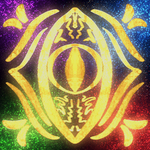
An Unbound Spirit is a Spirit that can manifest an existence on its own outside of some kind of host, though not without a price. Unbound Spirits are usually entities that already have some connection to Aloria, for example, Evolism worshipers who ascended after death, people who were turned into Spirits by the Void Gods as a form of punishment/blessing, or people who sold their souls to a Spirit Sovereign. Unbound Spirits have a physical body that appears roughly like their pre-death self manifested by Magic, thus not needing other living or dead hosts. Unbound Spirits are usually part of some master's domain, each Arken, each Void God, and each Spirit Sovereign has a domain, which all Spirits to some degree are bound to making them not entirely independent. Unbound Spirits can invade the bodies of the living, become immaterial, and some can even be summoned from their respective dimensions, in case they were banished there before. As such, it is possible for a Spirit summoner to accidentally release an Unbound Spirit from their imprisonment in for example the Void, thinking it is instead a construct of the Void itself. Unbound Spirits are exceptionally dangerous in Aloria if they have nefarious intentions, as their spirit-born immortality has released them from fears of death and consequences to their actions. Many of them are also forced to serve an unseen Spirit master from another Dimension, meaning they are unpredictable. If Unbound Spirits are killed, they temporarily are cast back into the magical plane, before they reform a physical body in Aloria.
- Unbound Mechanic I: Unbound Spirits gain the Shapeshift Pack Magical Variant for free. However, they only count as Disguised while looking like a Normal non-spirit/monster person.
- Unbound Mechanic II: Unbound Spirits do not need to make a minimum investment in Magic Point Buy to unlock Sinistral Variants, but must always use Sinistral Variants, they cannot use Radiant.
- Unbound Mechanic III: Unbound Spirits gain the Mindcontrol Pack Magical Variant for free. Additionally, they are immune to Persuasion Thralling themselves (unless they choose to be Thralled).
- Unbound Mechanic IV: Unbound Spirits can temporarily magically infest unwilling characters, hiding in their bodies, perceiving everything, "talking" in the person's mind, but are unable to use Abilities/take Actions. (Hidden)
- Unbound Mechanic V: Unbound Spirits are immune to anything that would read/alter their emotions or conscience, and if killed/harmed, can always respawn in a different place 1 hour later, and repair any damage.
Invaded Spirit
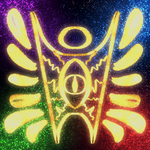
An Invaded Spirit is a Spirit that cannot manifest an existence on its own outside of a living host, and needs to feed off the host's soul and life energy to survive. Invaded Spirits are almost always entities born from other Dimensions, Dimensional Essence that has coalesced to form a consciousness and eventually a personality. Invaded Spirits are most commonly the type that seek to break into Aloria, and attach to Mages who are in the process of Limit-Breaking, or Mages who are careless and accept a Spirit into their mind through loss of focus or lacking awareness to a Spirit's scheme. Invaded Spirits can also be forced into people by third parties, for example Arken, or Void Gods, or Spirit Sovereigns. Invaded Spirits are generally speaking malicious, seeking to consume the host entirely or move on to the next when their last host expires. It is however possible to react some form of symbiosis with a host, or for such a Spirit even to have its will and power broken by the host and bent to their will. Invaded Spirits can also be summoned by Spirit Summoners, so some Invaded Spirits are Spirits that overpowered their summoner when they were careless. The key difference, however, between Summoned (Unbound) and truly Invaded Spirits, is Invaded Spirits cannot be removed or leave unwillingly. Many Invaded Spirits who live for long periods of time in Aloria hope to one day become Unbound Spirits, but many are also content hiding in plain sight inside mundane looking hosts. When playing an Invaded Spirit, you play both the host and the Spirit there-in, whether that host's personality is still in there, or has completely eroded away with the Spirit taking over, or switches between them on intervals. Invaded Spirits cannot be removed from their host without killing the host, meaning hiding is a must. However, luckily for the Invaded Spirit, Invaded Spirits are always considered Hidden, and are only revealed if they reveal themselves (on purpose or by accident), or if they challenge or insult a Higher Power who may reveal them.
- Invaded Mechanic I: Invaded Spirits are the exception to the norm, as they do have Heritage Traits. They inherit the Heritage Traits from the host they are possessing, but never the Free Packs.
- Invaded Mechanic II: Invaded Spirits can choose one Magic Point Buy Pack for free. This specific Pack is always cast as the Sinistral Variant, but Magic Point Buy Rules apply for other Packs.
- Invaded Mechanic III: Invaded Spirits gain the Wardrobe Pack Magical Variant Pack for free. Additionally they can sense residual Magic Alignment in an area during Events.
- Invaded Mechanic IV: Invaded Spirits are immune to anything that would read/alter their emotions or conscience, and if killed, can always respawn in a different place 1 hour later, but must find a new host body.
- Invaded Mechanic V: Invaded Spirits do not get a fifth Mechanic, because they inherit Heritage Traits from their Host Body, and gain those mechanics instead. This just preserves the formatting of the page.
Puppeteer Spirit
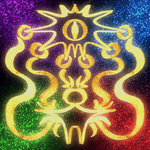
A Puppeteer Spirit is a Spirit that cannot manifest an existence on its own outside of attaching to and puppeteering of dead matter or inorganic matter like a suit of armor, a construct of wicker and driftwood, or rocks held together with Magic (which can be an Automata or a Machine, but this is very different from Bound Automata, as Bound Automata are Spirits that are specifically put into Automata with restrictions). Puppeteer Spirits are very similar to Invaded Spirits, but cannot or will not for whatever reason attach themselves to living people, thus having to manipulate unliving material to affect the world. Puppeteer Spirits are in essence invisible (though powerful Entities like Gods, Arken, and some Profile/Event Characters may be able to see them), and control a dead body or inorganic construct with magical conduits or tendrils. This control is very fine, meaning a corpse that is puppeteered can have very fine motoric control and expressions, but the Spirit does not reside in it. Puppeteer Spirits are aggressively possessive of the things they use to affect the world, and while they can be temporarily banished from their possession, will eventually return to it. Puppeteer Spirits survive by consuming Sinistral Magic around them (except their own), meaning they innately seek out Sinistral Magic users and encourage them to practice the dark arts so that they can survive. In a pinch, Puppeteer Spirits can also leech life essence or a soul directly from a living person, but will try to avoid doing so. Puppeteer Spirits are generally considered more harmless than Unbound and Invaded Spirits, but are still given the same destructive response as their corruptive influence to Mages around them makes them a risk in high population areas. While Puppeteer Spirits are considered Hidden in terms of not outwardly looking like a Spirit, this is not fool-proof like Invaded Spirits, as it is immensely obvious that a walking suit of armor without anyone inside is not normal.
- Puppeteer Mechanic I: While in or out of Combat, a Puppeteer Spirit can target an Ally's (not self) Radiant Magic Ability, force it to be Sinistral instead, and re-target it if necessary to a different Target, Twice per day.
- Puppeteer Mechanic II: Puppeteer Spirits gain the Mindcontrol Pack Magical Variant for free. Additionally, they are immune to Persuasion Thralling themselves (unless they choose to be Thralled).
- Puppeteer Mechanic III: Puppeteer Spirits can seal a spirit pact with a willing participant, some kind of mission, quest, or action. If they fail or attack the Spirit after, they take damage (discuss in Dm's what this means).
- Puppeteer Mechanic IV: Puppeteer Spirits gain the Duellist Invocation Pack for free. Additionally, when using it, they can force characters within it to use Sinistral Magic, which does not count for God Magic corruption.
- Puppeteer Mechanic V: Puppeteer Spirits are immune to anything that would read/alter their emotions or conscience, and if killed, can always respawn in a different place 1 hour later, but must find new objects.
Colony Spirit
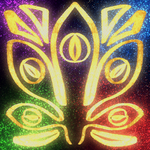
Most Spirits that come from other Dimensions, are in fact mindless balls of energy with single minded purposes. Sometimes however, these Lesser Spirits can congeal together forming a so-called Colony Spirit. When multiple Lesser Spirits group or work together, they gain intelligence and insight that multiplies each time more and more Spirits are added to the collective. Colony Spirits can either be Invaded in the sense that they control a single host together, or share multiple parts of an inorganic or corpse-like host each given their own part of the body to control. Colony Spirits cannot fully be killed off, however the Colony does become less intelligent each time one of them is removed or banished, until a new one is gained. It is impossible to exorcise a whole Colony ever, as the loss rate of individual Spirits is less than the amount they attract in the meantime, they can however be rendered ignorant for long periods of time. Colony Spirits are furthermore complicated by the fact that each member of the Colony can spontaneously form personality quirks or behaviors that often contradict with other members of the Colony, meaning their host can come off as having 5+ personalities or identities. Colony Spirits are as much a chaotic existence on themselves as they are to the world around them, and while they generally do not come across as harmful, they can still be dangerous because Colony Spirits attract lesser Spirits into the world even if they are not seeking to add more to their collective, meaning more Spirits appear around them against their will.
- Colony Mechanic I: Colony Spirits gain +7 Intelligence added after assigning their 14 Proficiency Points, but cannot invest in Intelligence Point Buy. Also their Persuasion Cap is 14, and they gain +4 to Persuasion Rolls.
- Colony Mechanic II: Each time a Colony Spirit is Exorcised or killed, they lose 1 Intelligence (they can regain it when the Player deems fitting). If they hit 2 Intelligence, they gain +1 Attack Stat (cap up to 11).
- Colony Mechanic III: Colony Spirits gain the Mimicry Pack Magical Variant for free, but they cannot use the mechanic to change their appearance into that which they are mimicking.
- Colony Mechanic IV: Colony Spirits can choose 1 Adapt Point Buy Pack (must be Magical Variant) for free, except Shapeshift Pack. Alternatively, they can choose 1 Pack from Tech Point Buy, instead.
- Colony Mechanic V: Colony Spirits are immune to anything that would read/alter their emotions or conscience, and if killed, can always respawn in a different place 1 hour later.
Mech Automata
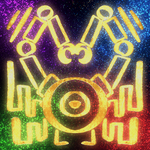
Mech Automata are defined as being entirely mundane, that is to say, they are mechanical constructs like robots, powered by mundane power sources. Mech Automata are meant to imitate people, so they usually have a Unimatrix which contains complex logic routines for personality, memory, and emotion. As such, Mech Automata are entirely independent machine people capable of operating on their own, but unlike for example Bralona which they might often be confused with, they do not have a Soul, and their behavior is very much programmed not spontaneous. Mech Automata only ever behave in ways their owner intended them to, and can sometimes even freeze up if their routines do not account for specific situations. Mech Automata are usually faithful and loyal to their creator (especially if their creator designed them to be) however there are plenty of tales of Automata that have broken free or even killed their master in self defense or an act of liberation. Some Automata have existed for hundreds of years, shutting down for extended periods of time and becoming weathered by the passage of time. Some Crystalline Meraic Automata have even been rumored to wander around in the jungles of Hadar, meaning there is a great deal of visual freedom using the Technology Branches in designing Mech Automata. Legally speaking Tech Automata have no rights in Regalia, they cannot stand trial, and are always treated as property of their master, which makes them dubious in legal status if they are free.
- Mech Mechanic I: Mech Automata cannot invest in the Magic or Faith Proficiencies at all. They however gain 1 free Point Buy Pack from any other Category without Proficiency investment.
- Mech Mechanic II: Mech Automata gain the Shapeshift Pack Mundane Variant for free, but have to always appear mechanical or robot-like with at least two legs and two arms.
- Mech Mechanic III: Mech Automata gain the First, Second, and Third Mechanics from the Skyborn Heritage Mechanics section. Additionally, Magic cannot tamper with their memories.
- Mech Mechanic IV: Mech Automata can choose one Skyborn Ancestry Mechanic to gain. Additionally, they will always know if a technician has altered their personality/programming.
- Mechanic Mechanic V: Mech Automata can always create backups of themselves/their personalities, meaning if they are killed, they can be re-built/respawn, but are liable to have an existential crisis about it.
Bound Automata
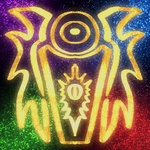
Bound Automata lay somewhere in between a Spirit and an Automaton. For whatever reason, the creator of this Automaton chose not to create a Unimatrix or deemed it to be insufficient, and instead bound a Spirit inside the Automaton as fuel and personality. This is the only way to truly render a Spirit harmless to its environment, as a Bound Automaton is no different from a Demon Jar (canopic jars used by Spirit Summoners to trap Demons). However, differently from these jars, Bound Automaton do allow for the Spirit to operate a body and communicate with the outside world, meaning there is still some inherent danger. Bound Automata are extremely illegal in Regalia, and when found out, are destroyed on the spot. Luckily for Bound Automaton, however, there is no way to externally tell if an Automaton is Bound or Mech, except to open up its chest cavity and inspect the mechanical parts for the presence of a functional Unimatrix, the lack thereof indicating that the Automaton is powered by Magic. Bound Automata also differ from Mech Automata in that they can cast Magic and learn the Magical arts, but in return have less technological functions. Some Bound Automaton manifest magical mutations over time, where the magic itself starts warping their metallic parts into strange shapes, or even part organic additions may form onto their chassis. Finally, there is a unique type of Bound Automata, called an Adat al-Hayat. Qadir are legally allowed to save a dying person by transferring their soul into an Automaton, thus creating a Revenant Bound inside an Automaton. These are the only legal exception to Bound Automata, and only when created/cared for by Qadir.
- Bound Mechanic I: Bound Automata If imprisoned, locked up, or chained down, can simply slip out of these restraints and walk through locked doors. They can still be attacked and hurt if careless though!
- Bound Mechanic II: Bound Automata gain +1 Attack Stat and +1 Defense Stat while inside the Sewers (breaking cap up to 11). If they are Ordial Aligned, they gain another +1 Defense Stat inside the Ordial Temple.
- Bound Mechanic III: Bound Automata can perform great feats of strength out of Combat (carry multiple people, throw boulders etc.). They also gain +5 in out of Combat dice roll Strength competitions.
- Bound Mechanic IV: Bound Automata can choose 1 Adapt Point Buy Pack (must be Magical Variant) for free, except Shapeshift Pack. Additionally, they can choose 1 Pack from Tech Point Buy to gain also.
- Bound Mechanic V: Bound Automata, if killed or destroyed, can temporarily become an Unbound Spirit, gaining those Mechanics, except ones that grant Free Packs, until they are bound to a unimatrix again and turned back.
Vatgrown Homunculi
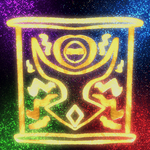
Vatgrown Homunculi are the product of a combination of Genos editing, bio-engineering, and alchemy. They are fully grown adult humanoids that were grown in some type of vat or cocoon in a lab, and then released with a capability to reason, think, feel, and form memories and personalities. Vatgrown Homunculi can even be made by combining genetic material of (un)willing hosts, producing something that looks like them, but always off. They can even imitate visuals of Affinities (such as Arkenborn, Godborn, or Archon), without being them, as Vatgrown Homunculi cannot have Affinities (except Markenism). Vatgrown Homunculi can have very varied personalities, often influenced by the alchemical ingredients used in their making. For example, Fireweed makes Homunculi aggressive and violent, while dulling narcotics make them pensive and stoic. Vatgrown Homunculi always have to deal with the fact that while they were made in manners not too dissimilar from childbirth, they do not have souls, and their personalities are a mixture of complex bio-engineered programming. In the eyes of the law, they are not people, and many people are disgusted with their very existence as a lab-grown creature. While Purists do not make a habit of attacking mundane Homunculi, some of the more religious fanatic ones see Homunculi as as affront to their God(s), and wish to destroy all fabricated humanoids. Vatgrown Homunculi appear like other Peoples of Aloria (or a mixture of them) but are always sterile and cannot reproduce, nor are they capable of understanding how to produce more Homunculi , a point of contention, especially for those who want to create their own society.
- Vatgrown Mechanic I: Vatgrown Homunculi are immune to being infected with/having Affinities. If they become Afflicted, their curing never costs Divinium, and they are never affected by the mental changes.
- Vatgrown Mechanic II: Vatgrown Homunculi gain 1 pack of Chem Point Buy for free, which can be a biological function of their body. If they become Dimension Aligned, they can choose to make this Magical instead.
- Vatgrown Mechanic III: Vatgrown Homunculi gain +1 Attack Stat (breaking cap up to 11) when attacking someone who is engaging in bigotry or discrimination against them, or did in the past hour by diminishing their personhood.
- Vatgrown Mechanic IV: Vatgrown homunculi can choose one Mechanic from either the Fin'ullen, Allar, Eronidas, or Rement Asha (excluding Living Metal) Heritage Traits, and gain it as a part of their biology.
- Vatgrown Mechanic V: Vatgrown Homunculi gain the Wardrobe Pack for free. Additionally, they are immune to any diseases and illnesses, even magical ones, but can still be carriers of them
Ephemer Homunculi
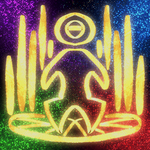
Ephemer Homunculi are similar to Vatgrown Homunculi, except that no Technology was made to make them, but Magic. Ephemer Homunculi are born Dimensionally Aligned by the type of Magic that created them, but unlike Spirits, they can Align to other Dimensions, because they are not wholly made of the Dimensional Essence that spawned them. Ephemer Homunculi are designed in the spells that weave them, meaning they can be made to look like practically anything, have any kind of personality, or any disposition, but they are never quite limited to it due to their Magical nature. They are equally created as fully fledged adults, but due to their Magical birth have a habit of being more unstable than Vatgrown. While the Vatgrown tend to try and make the best of their situation in a society that has not yet decided whether it wants to purge them all, Ephemer Homunculi are prone to more capricious and random behavior, and strong urges they cannot even explain themselves. Ephemer Homunculi are very illegal in Regalia, though at face value it is impossible to tell whether a Homunculus is Vatgrown or Ephemer, unless they start shapeshifting, something Vatgrown cannot do. Ephemer Homunculi are very popular among Elves, especially Allorn Elves, who disregard any moral implications of the Homunculi. Ephemer Homunculi can have parts of their personality or emotions disabled, and they are legally not people, making them excellent servants. Many Ephemer Homunculi who have broken free are freedom fighters for other Homunculi, even Vatgrown ones. Similiar to Vatgrown, Ephemer Homunculi are always sterile and cannot reproduce, and cannot make more Homunculi.
- Ephemer Mechanic I: Ephemer Homunculi gain the Shapeshift Pack Magical Variant for free. However, they cannot acquire Heritage Traits, and only Disguise while looking "Normal".
- Ephemer Mechanic II: Ephemer Homunculi gain the Mimicry Pack Magical Variant for free. Additionally if someone uses an Event-related Mechanic near them, they can duplicate it once per day.
- Ephemer Mechanic III: Ephemer Homunculi cannot be killed, if their body is destroyed, even a single drop of blood will re-manifest their body within an hour. They also regain lost limbs in matters of seconds.
- Ephemer Mechanic IV: Ephemer Homunculi can choose one Mechanic from either the Fin'ullen, Allar, Eronidas, or Rement Asha (excluding Living Metal) Heritage Traits, and gain it as a part of their biology.
- Ephemer Mechanic V: Ephemer Homunculi are immune to anything that would read/alter their emotions or conscience, and cannot have their body forcibly altered by Magic or have Mutations forced upon them.
Altered Mystech
Altered Mystech are Mystech that have been altered by mortals or divine entities after their initial inception, while originally starting as some other variant of Mystech. These variants can only be manifested through Roleplay on the Server. Altered Mystech, due to being bound to a physical form, is no longer capable of reviving. While killing them outright isn't quite as simple either, being killed in their physical form does not guarantee a revival without the intervention of the entities that bound them, and that is not always guaranteed.
Nature Bound
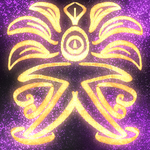
A Nature Bound Spirit was previously an Invaded, Unbound, Puppeteer, or Colony Spirit, but was Nature Bound through a Draconism Ritual that forces them to have a conscience, as well as real emotions and feelings. By the nature of being constrained by such unbreakable by-laws that make them more like real people than Spirits, they end up losing some of that Spirithood that they once had, but gain some more mortal aspects. Regardless of whether the Spirit was Invaded, Unbound, Puppeteer, or Colony, Nature Binding them causes them to have a singular physical manifested body. There is still a lot of Magic involved, but because they now have a single organic body, the Mystech Character Creation Rules no longer apply to them, and instead, they have rules defined in the Mechanics listed below. Nature Bound Spirits can become Afflicted or have Affinities (excluding Godborn/Arkenborn), can have God Magic, and can Shapeshift, but are anchored to one default body appearance. Nature Bound Spirits are intrinsically linked to Draconism, and while they do not need to be faithful to Draconism, they cannot be unbound from this condition either without the consent of the Dragon Gods, or forcibly and violently so by the Evolist Gods. A mortal or even other Spirit can't undo Nature Binding, but even having the intention or desire to do so is considered an act of betrayal to the cause. Nature Binding as a term has less to do with the natural world, and more to do with the idea that their very personality or identity or in short their nature, is being bound to a more normal existence with rules set by the Dragons to make them conform to a world that functions on Dragon Logic.
- Nature Bound Mechanic I: Nature Bound Spirits choose one (or Half) Heritage and receive the Heritage Traits from that. They are also functionally ageless but bound to one appearance (or Shapeshift with Packs).
- Nature Bound Mechanic II: Nature Bound Spirits inherit some Archon Mechanics. They gain Mechanic 1, & Mechanic 2. Mechanic 2 however does not block them from using Sinistral Magic, which they can use.
- Nature Bound Mechanic III: Nature Bound Spirits still bear some connection and compulsion to their original creation. As such, they may choose one Mechanic from all Evolism Religious Mechanics, or the Estelley Religious Mechanic.
Shard Bound
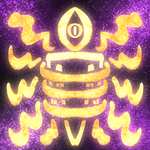
Shard Bound Spirits, for lack of a better comparison, are a closer approximation to having become "a real person", than any other form of Spirit. In Shard Binding, a Spirit's memories and feelings are fixed with permanent By-Laws similar to a Nature Bound Spirit, but on top of that, this now set collective is turned into an actual Soul as the Dragons see it. This Soul is then anchored to a shard (hence the name Shard Binding), which creates the closest approximation of being alive as they can get without a God creating an organic body for them from scratch. This equally moves them the furthest from being Spirits, because it barely leaves them with any traits or aspects that would remind them of their old Spirit nature. Shard Bound Spirits are then usually inserted into an Automaton so they have a mechanical body to move around. Being mechanical offers these Shard Bound certain advantages, but the most obvious by-product of being Shard Bound, is that they lose all Magic and their Magical connection to whatever Dimension they came from. They become Mundane, and are physically incapable of reconnecting with any other Planar Dimension, or even God Magic, without gaining an actual physical organic body. Just like Nature Binding, it is not possible for a mortal to undo Shard Binding. Shard Binding is so severe on the Spirit however, that there is no actual way to return the Spirit to their pre-binding form. Shard Binding is one-directional, the piece that was removed in Shard Binding can never return. They can only go forward and in search of an organic body if they ever want to cast Magic again.
- Shard Bound Mechanic I: Shard Bound Spirits despite not using Magic are protected by Draconic protocols, giving them the following Mechanics: Evolism Gahan Mechanic, Godborn Xeradon Mechanic 2, Bard Mechanic 2, and Artarel Mechanic 1.
- Shard Bound Mechanic II: Shard Bound Spirits cannot become Afflicted or have Affinities, but they are mechanically superior to other Automata, gaining Archon Common Mechanic 1, and due to lacking a Heritage, they gain all Qadir Heritage Traits.
- Shard Bound Mechanic III: Shard Bound Spirits If imprisoned, locked up, or chained down, can simply slip out of these restraints and walk through locked doors. They can still be attacked and hurt if careless though!
Playing Your Own Unbound Mystech
There is a special rules case for Unbound Mystech. Normally, if a Player has their character summon a Spirit, this Spirit is intangible and does not have any separate Proficiency Spread, instead functioning as an extension of their Summoner Character. We encourage Players to have friends play their Summoned Mystech. However, this is not always viable, in the case of Players who want to play a specific kind of Spirit in conjunction with their regular character. In this case, it is allowed for a Player to have a Mystech Character Sheet and a Normal Summoner Character sheet, and consider these characters "pacted" and connected, meaning they can share information without it being considered Metagaming. However, it is never allowed to multi-box these Characters in the same Combat Scene or Public Roleplay Scene, and it is never allowed to "quick summon" and swap Characters on the spot in response to or before initiating Combat Roleplay. This mechanical feature should be treated with pro-roleplay use in mind, and not with the intent to min-max Abilities or Combat/Event Functions. This can also apply to Mech Automata (but not Bound Automata).
Mystech Alignment
Mystech often have Dimensional Alignment, because the majority of Mystech are manifested or summoned through Magic. This may be dependent on how or why a Mystech came into being, but this section will cover a general listing of all possible combinations of Mystech with Dimensional Alignment.
- Unbound Spirits if they are specifically not Revenant Spirits can be Void, Exist, or Ordial, but cannot align with multiple Alignments.
- Unbound Spirits if they are Revenants can be God Magic, but if Aligned to another Dimension they are corrupted to that new Dimension.
- Invaded Spirits can be Void, Exist, or Ordial, and while they cannot align with multiple Alignments, their Host can.
- Puppeteer Spirits can be Void, Exist, or Ordial, but cannot align with multiple Alignments. Even if they puppet a dead-corpse host.
- Colony Spirits can be Void, Exist, or Ordial, and while they cannot align with multiple Alignments, their Host (if they are living organic) can.
- Mech Automata cannot be Dimensionally Aligned at all. They cannot connect with the Veil, or learn any Magic, and as such are devoid of Alignment.
- Bound Automata, Vatgrown Homunculi can be Void, Exist, or Ordial, but cannot align with multiple Alignments.
- Ephemer Homunculi are born Void, Exist, or Ordial, but can later align with multiple Alignments.
Mystech Morality
Mystech is an extremely controversial subject that engineers, scholars, and Mages have toyed with over the millennia. To create life itself is considered one of the secrets of the Dragons, something even the Gods of other Religions cannot do, and are sometimes even seen as envious of. At the same time, each Religion has a strong concept of life and death and an afterlife of a kind, with the exception of Evolism, making the idea of deciding who gets to live or die a purely divine judgment. To many, the existence of many Mystech is an affront to the divine right of Gods at face value, even when not considering the other implications of Spirits, they are tackled with more detail in a subsection below. The topic, of whether Mystech should be considered real people, or whether it is safe to form attachments and bonds with them, is a matter of open debate that does not really have a clear outcome or conclusion. To some, Mystech are people, because they are capable of forming memories, having changing personalities based on those memories, and express and feel emotions in just the same way any born and living person could. Yet at the same time, some claim Mystech are not real people, because those emotions and personalities are simulated. They are the by-product of an entity intending to behave in approximation to life, and some find the fact that they can choose to feel specific emotions, and subsequently decide to turn them off or not feel them, as inauthentic. Some would also argue that since their personalities by default were created, that they did not learn through childhood and growing up why certain behaviors are good, and certain behaviors are bad. They are told to have a morality (or none!), and whether Mystech are capable of true empathy is as of yet unclear. At the same time, they can express true grief and love that feels just the same to any born and living person with a soul, so the question often becomes, if it feels real, why shouldn't it be? There is no ontologic truth to whether Mystech are good or bad, and for each type there are different degrees of subjective preference. Some might think that Spirits are horrendous, but accept Automata and Homunculi, while some might be disgusted with Homunculi but accept Spirits and Automata. It is important to remember that Characters who have complex reasonings for their subjective preference, should not be mocked or dismissed as insane or "nazis" for hating Mystech for their own reasons. That would be engaging in the same dehumanizing bigotry that pro-Mystech rights proponents claim to be against.
Spirit Morality
Spirits add another layer of complexity on top of the Morality of Mystech as a whole, because Spirits have a permanent and undeniable negative effect on the world around them that can at best be tolerated. Spirits are just as capable as the other Mystech of learning and experiencing emotions and feelings in the same way born and living people do, but Spirits that are not natural to the world of Aloria need to hold onto Aloria through some act of sustenance. This can range from very slowly eating away at the life essence or soul of their host, or siphoning away life essence from people around them, or passively attracting more Spirits to their location, so that even if they choose to defend their friends from these lesser Spirits, do they not at least have some culpability to the danger that they put their friends in? Spirits are also notoriously deceitful. A Spirit can absolutely choose not to drain the life essence of their friends around them, but there is no way to tell if a Spirit is lying, other than to believe it on its good word. Other Spirits might feed on negative emotions or Magic usage, thus encouraging people around them to cast more Magic which in turn could damage the world, or encourage negative emotions like greed, selfishness, betrayal, and pride, in those around them and generally causing more chaos. This is not to say that Spirits cannot be genuinely good-natured people, even if they come from a chaos-born Dimension like the Void. The point that it is trying to express, is that all Spirits have one primary objective: to stay alive and live as well as possible, and that this objective never comes without a cost to the people around them in some form. They can choose to mitigate the effects, or extract that cost from someone else outside their group, but Spirits always remain a genuine risk to the people around them, and anyone who blindly ignores that risk, is quick to become a Spirit's next meal.
Backstory Hooks
Backstory Hooks describe short scenarios from which shared Mystech could have originated. For example, multiple Spirits could have come from the Legion of the Spirit Sovereign Alamat, the Great Fire Demon. This creates familiarity between the Demons, and sometimes even rivalry between different Demon Legions as Spirit Sovereigns compete with one another to become Void Gods, using their Spirits to fight each other in turn. Equally, some Homunculi could for example have escaped from a Methenwë Elven magical laboratory, and have shared trauma in their horrible treatment. Backstory Hooks are there for inspiration, but you can also just create your own backstory.
Spirit Sovereigns
- Torama's Legion: The Spirit Sovereign Torama is a nature-defiler, where Torama's Legion includes many Spirits that are bastardizations of nature that seek to corrupt nature in the twisted image of their Liege-Lady.
- Lirayna's Legion: The Spirit Sovereign Lirayna is a spider-queen of secrets and deceit, her Legion in particular steals objects of power and secrets from other Legions, and manifest in spider-like appearances.
- Qamta's Legion: The Spirit Sovereign Qamta is seditious swamp-lord, their Spirit Legion copies the forms of their hunters, and attempts to steal their memories, with the intent to make them forget themselves.
- Alta's Legion: The Spirit Sovereign Alta is a hedonist Legion, where their Spirit minions seek to defile the mortal population of Aloria and turn them into hedonistic, law-breaking and morally deprived thralls.
- Milai's Legion: The Spirit Sovereign Milai takes delight in the monstrous, their Legion taking on monstrous proportions and Transformations to torment the people and make Forests (particularly Gloomrot) feel unsafe.
- Alamat's Legion: The Spirit Sovereign Alamat is the quintessential Fire Demon, his Legions relish in blood, battle, and destruction, and he is particularly hated by the Sihndar who wish revenge for their slain brethren.
- Zarak's Legion: The Spirit Sovereign Zarak seeks eternal darkness and winter, his Legions scheme to enact rituals to freeze over whole cities and disrupt the weather permanently, turning regions of warmth into wastelands.
- Tazman's Legion: The Spirit Sovereign Tazman delights in drowning and suffocation, his Legions try to sink ships beneath the waves and encourage weak swimmers to enter the water, where they are swiftly pulled under.
- Razu's Legion: The Spirit Sovereign Razu loves to watch mortals get lost and die in the sprawling, inescapable mazes and labyrinths it makes, its Legions create mazes and populate the tunnels with monsters.
- Helby's Legion: The Spirit Sovereign Helby is deceptively dangerous, as its Legion attempts to influence people to become obsessed with repetitive, meaningless tasks, which seem funny until the person repeats them until they die.
- Shirot's Legion: The Spirit Sovereign Shirot is a particular enemy of the Narim, one whose Legion takes delight in making Unionists doubt their faith and twisting their piety and fervor into cruelty and misery.
Religious Spirits
- Thiruvar: Thiruvar are Spirits manifested by the Fornoss God Odal, who act like holy warriors for the Vola and punish those who insult or mock the Vola Gods. Accepted by Vola worshipers, but highly illegal in Regalia.
- Helvar: Helvar are Spirits manifested by the Fornoss God Helskorn, who are specifically made to heighten the worst qualities in a person and want to relish in self-serving acts at the expense of others.
- Divana: Divana are Primal Revenants (only!) manifested by Draconism Goddess Daiana that are echoes of people who have died long ago. They are created by Daiana to protect nature and the elements from those who would abuse them.
- Gahana: Gahana are Spirits (or reborn Kathar/Evolists) manifested by the Evolist God Gahan with an insatiable lust for Magical power. They always seek to acquire more Magical power to enrich themselves and become god-like.
Automata
- Adhadaa: Adhadaa are Bound Automata that were designed by the Sariyd Empire, and had Revenant Sariyd souls inserted before the Great Storm. Adhadaa are only legal if they find a Qadir tender in the city of Regalia.
- Al-Jabha: Al-Jabha are Mech Automata that were specifically designed to fight the endless war on the Qadir frontline. Those in Regalia were sent there to fight Songaskians or Ordial Undead/Necromancer summons for Al-Alus.
- Mëseillaad: Mëseillaad are Bound Automata made of Death Isldar Dark-Metal with Ordial Shades that broke free from their overlords, and now fight a guerrilla war against the Death Isldar/Ordial Aligned for their freedom.`
- Ishitan's Legion: Ishitan is the Ordial Spirit Sovereign in service of the Machinist, who makes Ordial Corrupted Bound Automata monstrosities who hunt down Qadir and Songaskian alike, seeking to claim Farah'deen.
Homunculi
- Methenwë Issil: Methenwë Issil are escaped Vatgrown or Ephemer Homunculi that escaped the Magitech labs of the Methenwë with plenty of trauma due to experiments, and hatred for the Allorn cause because of it all.
- Herzog's Guard: Herzog's Guard come in two flavors: Vatgrown Homunculi that serve the Lothar Order against the Occult, and those who tragically became Vampires in that struggle, forming the Herzoger Coven.
Trivia
- Akula are in fact not Spirits. Rather, Akula are a category of giant deep-sea creature that has fallen prey to (usually) Void essence corruption, as there are no forces fighting the proliferation of void or exist energies in the deep dark. Still, Akula are usually a type of necrotic host to several dozens Spirits.
- While it is not possible to permanently kill a Spirit for most mortals, certain Profile/Event/DM Characters can. Spirits should always remain cautious around powerful entities, and remember that their mortality begins when they meet someone more powerful.
- Who exactly invented the first Homunculi is unclear. What is clear however, is that the Seraph to Meraic civilizations definitely did not have it, meaning Vaulter Maraya are always creeped out by them. There is some implication that the Dewamenet invented Vatgrown Homunculi towards the end of the Dewamenet-Allorn war, but little evidence remains.
| ||||||||||||||||||||||||||
| Accreditation | |||||
|---|---|---|---|---|---|
|
| ||||